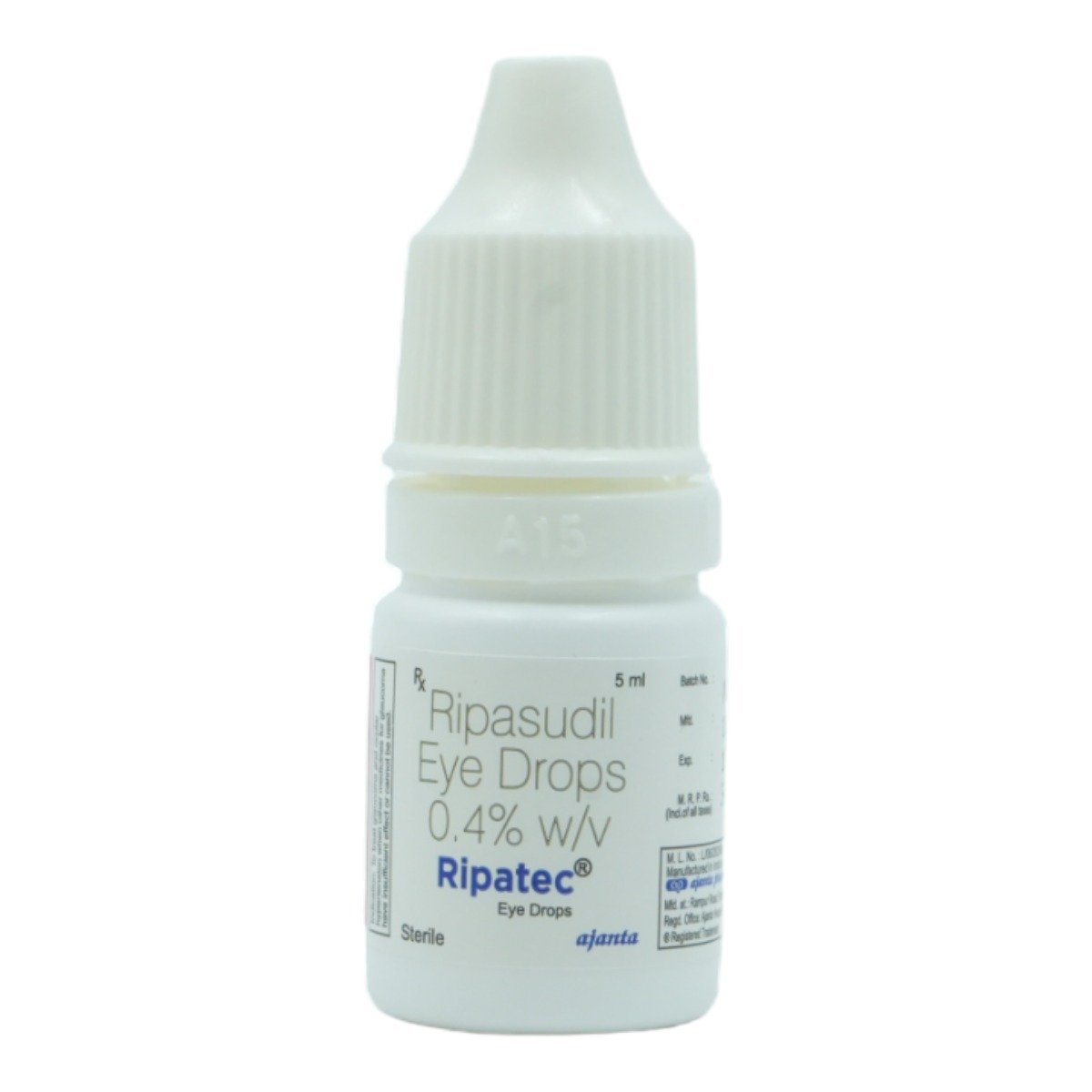Ripasudil
About Ripasudil
Ripasudil belongs to a class of antiglaucoma medications generally used to treat glaucoma and ocular hypertension (high pressure in the eyes). Ripasudil is usually used when no other medicine effectively treats glaucoma or ocular hypertension. Glaucoma is an eye condition that causes damage to the optic nerve (necessary for optimal vision) due to unusually high eye pressure. Ocular hypertension is an increase in ocular pressure caused by inadequate aqueous humour outflow (fluid in the eye that maintains normal pressure by its continuous flow).
Ripasudil has high intraocular permeability and works by decreasing intraocular pressure (IOP) and enhancing flow facility, resulting in a drop in eye pressure.
Ripasudil is administered in the dose and duration prescribed by the doctor. The doctor will alter the dose based on your condition and response to the medication. Conjunctival congestion, conjunctival inflammation, eye discomfort, and inflammation of eyelids may occur in some situations. Most side effects do not require medical treatment and fade with time. However, if the side effects persist, consult your doctor.
Continue using Ripasudil for as long as your doctor has prescribed it to treat your illness effectively. If you are allergic to Ripasudil or its ingredients, do not use it without consulting a doctor. If you are a pregnant or nursing mother, consult your doctor before using Ripasudil. Consuming alcohol with Ripasudil may raise the chance of serious side effects. If you use more than one ophthalmic medicine, give each one at least a ten-minute gap. Ripasudil may induce temporary blurred vision; therefore, avoid driving or operating machinery until your vision is clear. Before taking Ripasudil, inform your doctor about your medical history and other medications you are currently taking to rule out any potential negative effects.
Uses of Ripasudil
Medicinal Benefits
Ripasudil belongs to a class of medications known as antiglaucoma drugs. Ripasudil contains Ripasudil, which has high intraocular permeability. It decreases intraocular pressure (IOP) in a dose-dependent manner and enhances flow facility, resulting in a decrease in eye pressure.
Directions for Use
Storage
Side Effects of Ripasudil
- Conjunctival congestion
- Conjunctival inflammation
- Eye irritation
- Blepharitis (inflammation of eyelids)
Drug Warnings
Continue using Ripasudil for as long as your doctor has prescribed it to treat your illness effectively. If allergic to Ripasudil or other medications, do not use them without consulting a doctor. If pregnant or breastfeeding, consult your doctor before using Ripasudil. Consuming alcohol with Ripasudil may raise the risk of serious side effects. If you use more than one ophthalmic medication, give each one at least a ten-minute interval. Before taking Ripasudil, inform your doctor about your medical history and other medications you are currently taking to rule out any potential negative effects. Ripasudil may cause temporary blurred vision. Thus, avoid driving or operating machinery until your vision is clear.
Drug Interactions
Drug-Drug Interactions: No interactions were found/established.
Drug-Food Interactions: No interactions were found/established.
Drug-Disease Interactions: No interactions were found/established.
Drug-Drug Interactions Checker List:
Safety Advice

Alcohol
cautionIt is advised to avoid alcohol intake since it may worsen the side effects.

Pregnancy
cautionConsult your doctor, and there is no substantial research yet on using Ripasudil in pregnant women.

Breast Feeding
cautionConsult your doctor; there is no substantial research yet on using Ripasudil in breastfeeding/nursing mothers.

Driving
cautionIt is not known whether Ripasudil alters the ability to drive. Do not drive or operate machinery if you experience symptoms affecting your ability to concentrate and react. Seek medical attention if the symptoms persist longer.

Liver
cautionPlease consult your doctor if you have any concerns regarding using Ripasudil in patients with liver impairment. Your doctor will prescribe only if the benefits outweigh the risks.

Kidney
cautionPlease consult your doctor if you have any concerns regarding using Ripasudil in patients with kidney impairment. Your doctor will prescribe only if the benefits outweigh the risks.

Children
cautionThere is limited information available on the use of Ripasudil in children. Please consult your doctor.
Habit Forming
Diet & Lifestyle Advise
- If you wear contact lenses, clean and replace them more frequently. Never share your contact lenses. Always cleanse your hands before putting on the contact lens.
- Wipe your eyes and face with clean towels or tissues at all times.
- Maintain good hygiene to keep your eyes clean and clear of irritants.
- Do not rub your eyes.
- Avoid looking at digital screens for extended periods of time.
- Wash your hands thoroughly, and do not touch the dropper before using drops to avoid contamination.
Special Advise
- Routine eye examinations are suggested at least every two years to detect glaucoma.
Patients Concern
Disease/Condition Glossary
Glaucoma: Glaucoma is an eye condition that occurs when the optic nerve, which connects the eye to the brain, is injured. It is usually caused by a build-up of fluid in the front of the eye, which raises the pressure inside the eye. Glaucoma can cause vision loss if it is not detected and treated early.
Ocular hypertension: Ocular hypertension is the accumulation of pressure in the eye caused by insufficient aqueous humor outflow (fluid inside the eye that maintains normal pressure).
FAQs
Ripasudil contains Ripasudil. It has high intraocular permeability and works by decreasing intraocular pressure in a dose-dependent manner and increasing flow facility, thereby causing a decrease in eye pressure.
Please do not discontinue using Ripasudil without consulting your doctor. Continue using Ripasudil for as long as your doctor has prescribed it to treat your illness effectively. If you have any difficulties while taking Ripasudil, do not be afraid to discuss it with your doctor.
Ripasudil is safe if taken in the dose and for the duration as prescribed by your doctor. Take it exactly as advised, and do not miss a single dose. Follow your doctor's instructions carefully and notify them if any side effects bother you.
Do not double the dose. If you miss a dose, take it as soon as possible. If it is time for the next dose, skip the missed dose and return to your regular dosing schedule.
Ripasudil may cause temporary blurred vision immediately after use. So, do not drive or operate machinery right after using Ripasudil; wait until your vision is clear to avoid mishaps.




